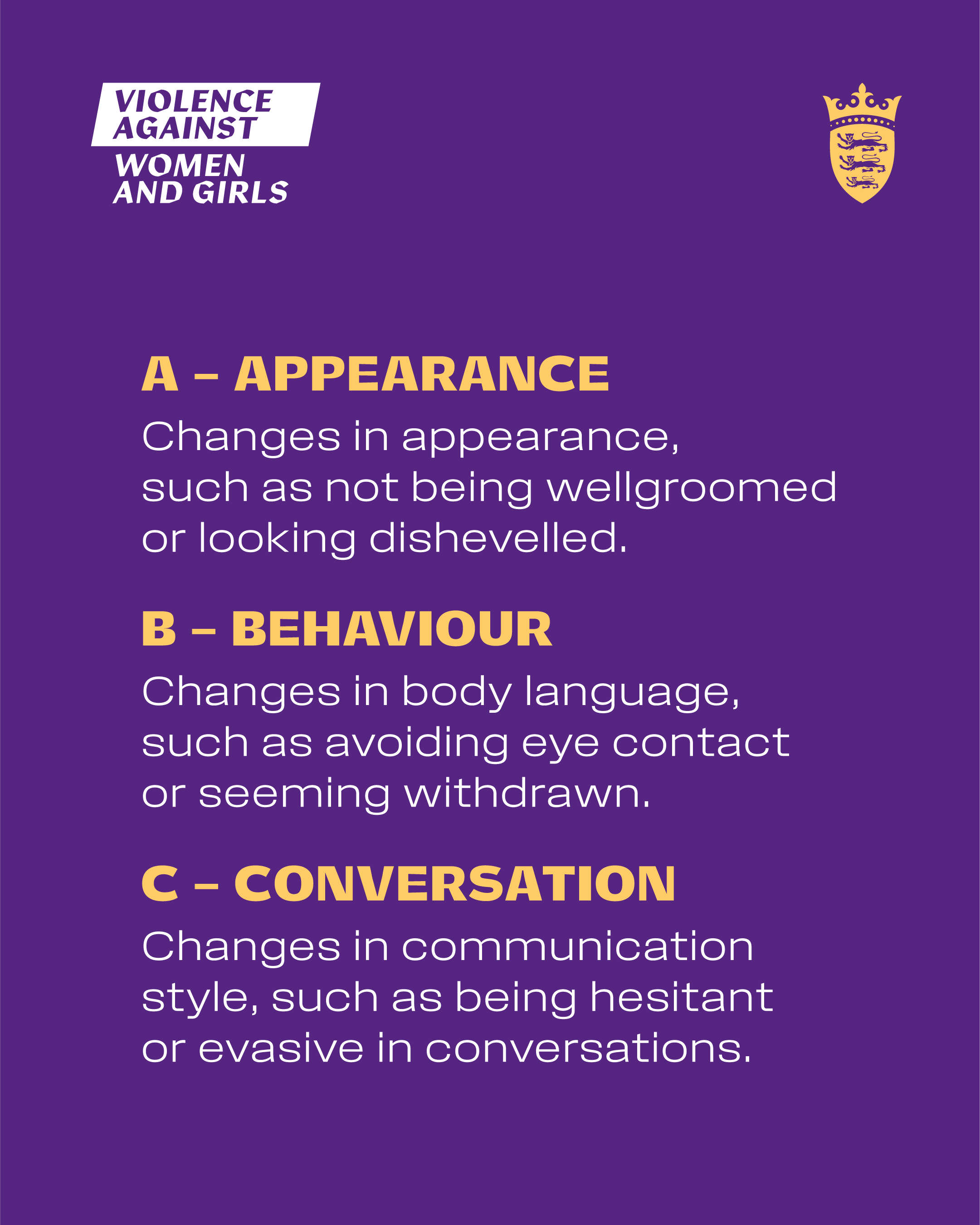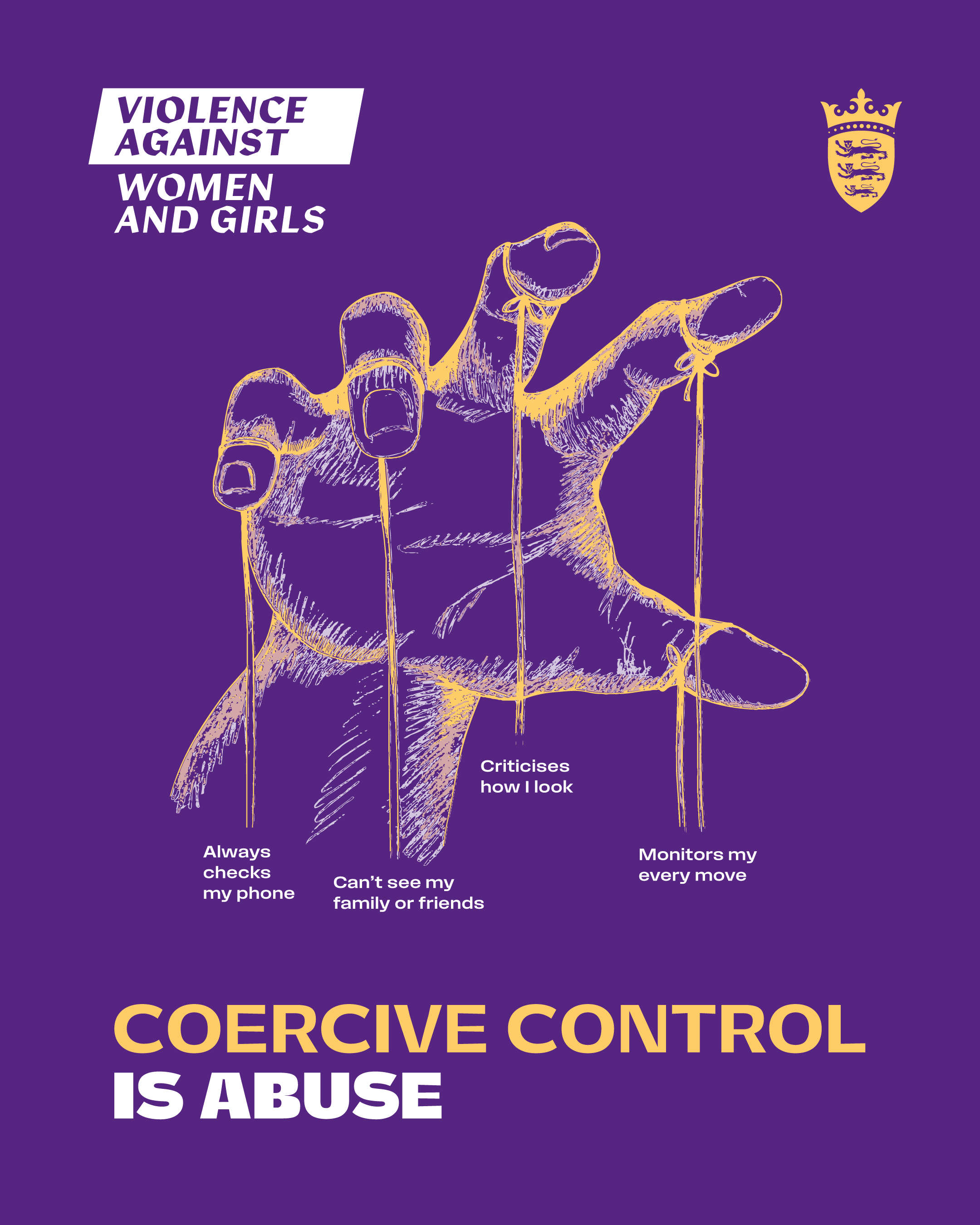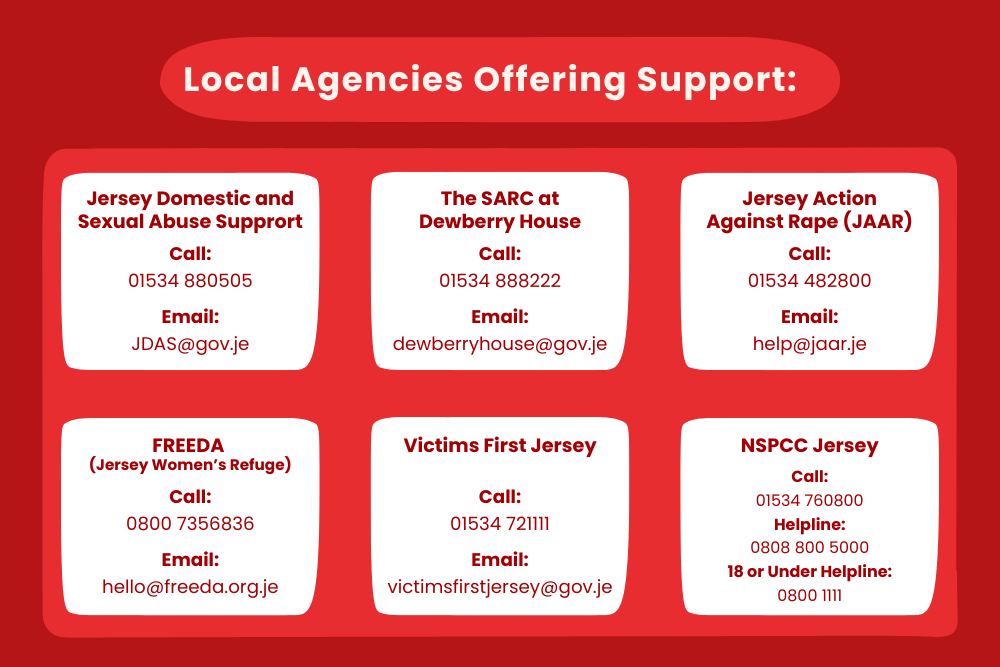
A new tool has been created for islanders to spot the signs of domestic abuse by using ABC.
The campaign is part of the government's work to raise awareness on the issue of violence against women and girls (VAWG).
To mark Domestic Violence Awareness Month, they have created an ABC checklist which focuses on the signs someone might show if they are a victim of coercive control.
It is designed to be a simple way for islanders to spot red flags and patterns in behaviour.
85% of survivors in Jersey reported experiencing jealous and controlling behaviour as well as emotional or psychological abuse.
The statistics come from a survey in 2023, which also revealed that almost 3 in 5 survivors went through financial or economic abuse.
ABC for Coercive Control
A - Appearance:
Changes in appearance, such as not being well-groomed or looking dishevelled.
B - Behaviour
Changes in body language, such as avoiding eye contact or seeming withdrawn.
C - Conversation
Changes in communication style, such as being hesitant or evasive in conversations.

Victim Services Jersey has posted an extended version of this on social media:
A: Dressing very differently, injuries explained away, new or sudden changes.
B: Quieter, jumpy, avoids eye contact, constantly checking their phone, asks permission to make small decisions, and cancels plans at short notice.
C: Hesitant, guarded, repeats “rules” their partner has set, makes excuses, minimises concerns and says they are “overreacting”.
The charity says if something feels off, listen without judgement, believe them and signpost to support.

In the government's 'Coercive Control Is Abuse' campaign, it says tactics used by abusers can be subtle and can include:
- Keeping checks on what you spend, where you are or monitoring your phone or emails;
- Controlling your appearance and repeatedly putting you down;
- Isolating you from your family, friends or work colleagues;
- Depriving you of your basic needs;
- Monitoring you through online communication tools or using spyware;
- Depriving you of access to support services, like specialist support or medical services;
- Taking your wages, benefits or allowances;
- Preventing you from having access to transport or from working;
- Disclosing your private medical information without consent.



 Jury finds Shay John Bester guilty of offences including rape
Jury finds Shay John Bester guilty of offences including rape
 African community groups express 'disappointment' with Deputy Ozouf sentencing
African community groups express 'disappointment' with Deputy Ozouf sentencing
 Island Energy to return to Royal Court over Mont Pinel gas explosion
Island Energy to return to Royal Court over Mont Pinel gas explosion
 Jersey to introduce legal limit for PFAS in drinking water
Jersey to introduce legal limit for PFAS in drinking water
 Jersey Electricity drops St Martin solar farm idea
Jersey Electricity drops St Martin solar farm idea
 PPC won't move to block Deputy's return to States Assembly
PPC won't move to block Deputy's return to States Assembly
 Jersey's next government urged to create laws preventing exploitation of workers
Jersey's next government urged to create laws preventing exploitation of workers
 Philip Ozouf sentenced to 120 hours community service
Philip Ozouf sentenced to 120 hours community service



